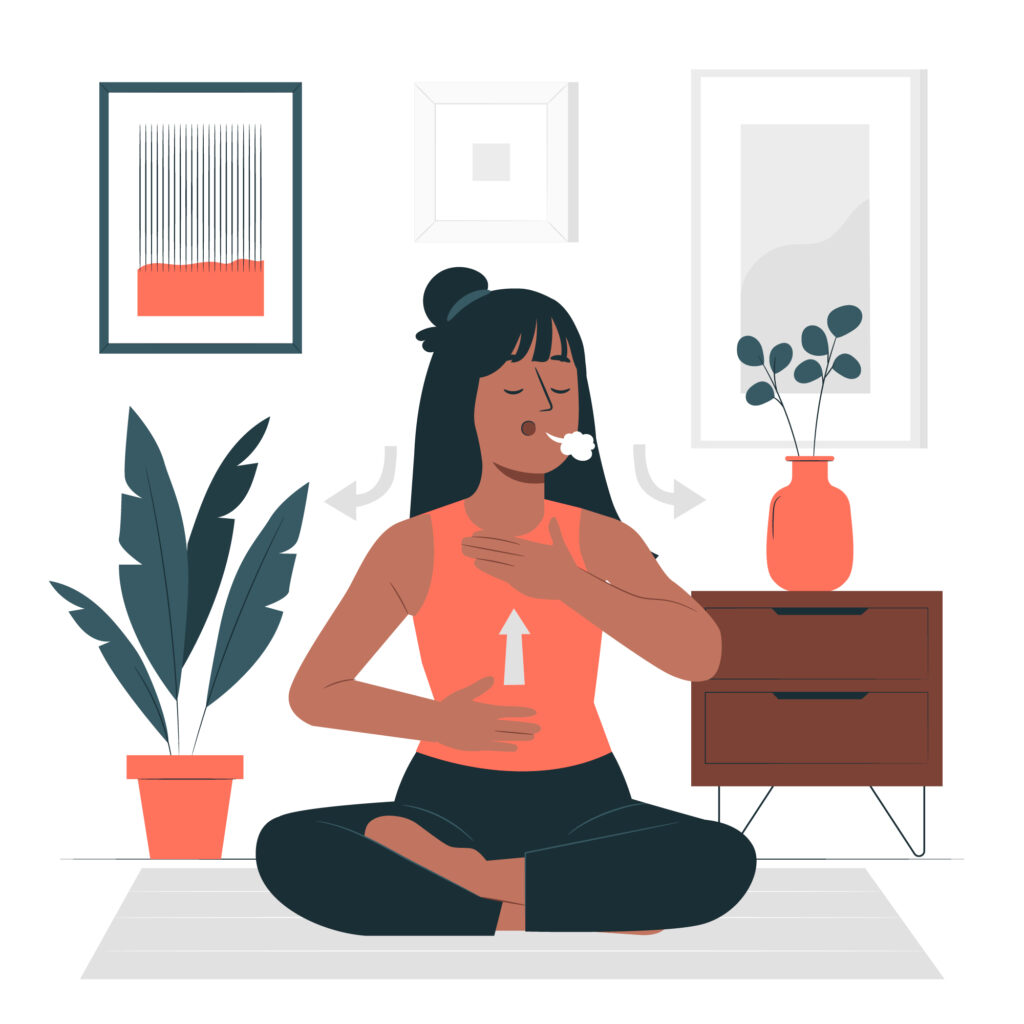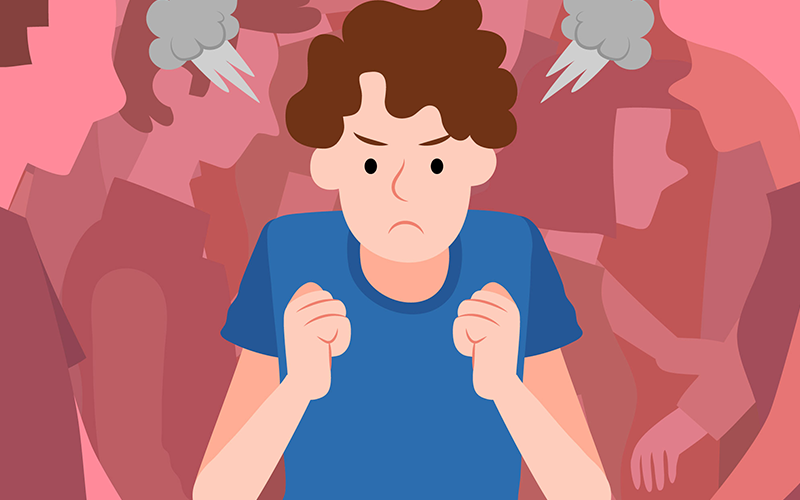Dear Friend,
What’s the first image that comes to your mind when you hear the word “anger”?
A raised voice? A slammed door? Maybe that one moment where you said something you didn’t mean—or someone else did?
When we were kids, we were often told not to get angry. “Don’t shout,” “Be calm,” “That’s not how we behave.” But no one really taught us what to do when we did feel angry. No one told us that anger isn’t always bad. That sometimes, anger is just a sign that something inside us feels unheard, disrespected, or hurt.
Have you ever thought about where your anger comes from?
A lot of people define or place anger into the “negative emotion” category, but is it really negative? Why is it considered negative? We get angry because maybe someone has wronged us. Sometimes because we didn’t get what we hoped for. And sometimes, we just feel ignored or pushed aside. If you really pause and listen closely, you’ll realize that anger often shows up to protect us. It wants the best for us—even if it shows up a little loud and messy.
Now don’t get me wrong—I’m not here to justify someone shouting at you, or saying it’s okay to lash out. That’s not what I mean. I’m just saying that we need to start understanding what our anger is trying to tell us. That’s why it’s very important to manage our anger and other emotions. I am not saying to control them and never show them, but instead, when you feel them, learn how to express them without hurting someone or yourself.
Managing anger is not easy—I know that. But not even trying with all your heart is wrong.
Have you ever experienced a moment where someone—maybe a professor, a boss, a friend, or even a stranger—said something that cut deep, and you felt that sudden heat rise inside you?
What did you do?
Did you speak up? Stay silent? Laugh it off? Walk away with your heart pounding? Maybe you froze and replayed the moment a hundred times later.
I’ve done all of these at different points. And each time, I learned something—about my limits, my reactions, and what still hurts.
There’s no right or wrong way. But I often wonder how many of us carry those moments like unspoken weight. Because if we keep bottling our anger up, it doesn’t just disappear. It builds. It leaks out in other places. It turns into resentment or numbness.
So now, I try to do something different. I try to speak up—not with rage, but with honesty. If someone says something that hurts, I try to say, “That really affected me. That didn’t feel okay.” And even if they don’t apologize (because let’s be honest, not everyone will), I still feel lighter for having said it.
**Speaking up doesn’t always mean confronting someone immediately or in the heat of the moment. Sometimes it’s saying, “I need a moment to process what just happened,” or expressing, “I’d like to discuss this when we’re both calm.” The goal is to set a boundary, protect yourself, and express your feelings in a way that promotes understanding, not conflict.
It’s a lot easier to do this with people we’re not deeply connected to. But what about the people we love? Our parents, our friends, the ones who really matter. What if they get angry at us without giving us a chance to explain our side, without listening to us? That’s where it gets harder, right?
If that’s ever happened to you, please know this: You don’t have to keep it all inside. Give it a day or two. Then try to express what you felt.
But what if they are still not ready to listen? Well, then try to write a note to them or send a message. Even if that does not work, then take a step back. Wait for them to realize their mistake.
But what if they never come?
Then it depends on you—what you choose. Do you choose to be the bigger person and let it go for now, or do you choose to stand firm on your ground a little while longer? It depends on you. And none of the options is wrong. Don’t let someone else tell you what to do—because they don’t know how hurt you are. They were not in your place.
“Anybody can become angry—that is easy. But to be angry with the right person, to the right degree, at the right time, for the right purpose, and in the right way—this is not easy.” — Aristotle
You know, anger isn’t just something we should be afraid of or try to bury. In fact, when I think about it, anger has this quiet power—it’s a force that helps us stand up when something feels wrong. It’s that fire inside us that gives us the courage to speak out, to protect the things we care about, and to fight for what feels just. It’s not always easy to handle, but there’s a kind of strength in it that helps us stand up for ourselves and for others when the world needs us to.
Let’s also talk about the little angers. The random crankiness. The “I’m just in a mood” days. Ever had those? What if I told you that it’s all in your head? Would you get angry? I would—maybe not “angry-angry,” but “annoyed-angry.”
You must be confused about what I’m talking about. But have you ever noticed yourself when you get angry? Because anger is different in itself. Not every time someone is angry, it’s the same type of anger. Sometimes it’s fake anger, sometimes fear-based anger, hurtful anger, or just frustrated little anger.
But the good thing is—you don’t have to look for multiple ways to manage each type of anger.
The main thing that has helped me with my anger management is meditation.
I know—you might be tired of hearing “meditation this, meditation that,” but it does work. It takes time, depending on the person, but it does work.
And then there’s that deep-rooted anger—the kind that’s lived inside you for years. Something hurt you, and you didn’t get a chance to process it. So it stayed, growing in silence, turning into walls that pushed people away. You started to look cold on the outside, but deep down you care—you’re just so angry from the inside with everything and everyone that you don’t know how to show that you care. For me, it took nearly two years to slowly learn, unlearn, and grow. It wasn’t just about controlling my reactions—it was about understanding the pain behind it. Even today, I meditate when things feel out of control.
Now, my main strategy is thinking about exactly what made me angry. Because sometimes, I just don’t know why I am angry and cranky the whole day. But as soon as I sit with myself and focus on what the reason is, things get better in a moment.
Sometimes the reason is as small as not waking up at the time I wanted to wake up. I know it sounds funny and horrible—but it’s the truth.
And sometimes, I am angry on a level where a person can sense it through my eyes—shooting lasers. During those times, I do something else.
Just to give you a warning—what I’m going to tell you might seem like the most stupid thing you’ve heard in decades—but it works for me. So maybe laugh and make a weird face, but try it a few times.
When I’m out-of-control angry, I go somewhere alone. It could be a washroom if you are in a public place, or just the side of a road, or your room if you are at home. Even at home, my personal favorite is the washroom. Then I put my hand on a cold, non-living object (like a wall or sink), and I imagine transferring all the heat of my anger into that object. I really imagine it—like I’m letting go of the fire inside me. And somehow… it works. It calms me down. And once I’ve calmed down— I think through my thoughts and process everything that happened to make me angry.
Try it sometime. Even if it sounds ridiculous. You might be surprised.
** I know this may sound a little quirky, but sometimes thinking outside the box can help in surprising ways. If this idea isn’t for you, don’t worry. There are other grounding techniques—like breathing exercises or focusing on the present moment through mindfulness—that can help you regain control and reset. And if things ever start to feel too heavy to handle alone, please reach out to a professional therapist or someone you trust who can support you through it. You don’t have to carry it all by yourself.
Friend, anger is not your enemy. It’s not something to hide or push away. It just needs a little more attention, a little more kindness. From you to you.
So next time you feel it rising, pause. Breathe. Ask yourself: What are you trying to tell me, anger? What do I really need right now?
What I’ve learned through all this is: anger isn’t our enemy. It just wants to be seen and understood. It’s up to us to listen—to find a way to meet it with kindness, not resistance. And to speak up, not with rage, but with courage and care.
I hope these words find you on a day you need them. And if not today, then maybe another day. Just remember—you’re not alone in how you feel. No judgment here, just support and care.
Before I sign off, let me ask you something: What is your anger trying to say—and are you ready to listen with kindness?
With warmth,
Your Friend

Images courtesy of Freepik
Note: The Free Your Mind Mental Health Society is an independent youth-led organization. The contents of this blog are not intended to be a substitute for professional medical advice, diagnosis, or treatment. Always seek the advice of your physician or another qualified health provider with any questions you may have regarding a medical condition. In the event of a medical emergency, please call your doctor or 911 or other local emergency numbers immediately.




